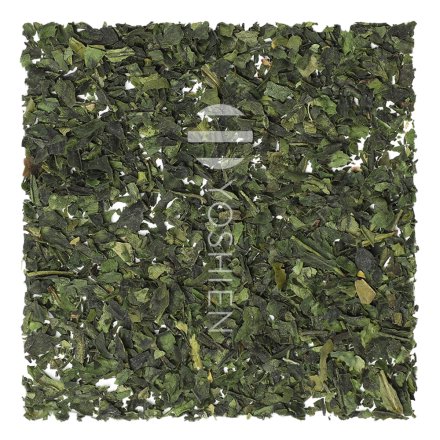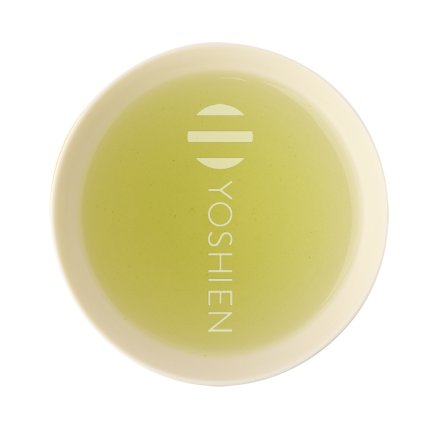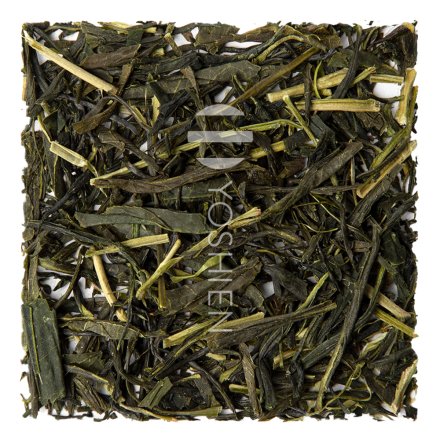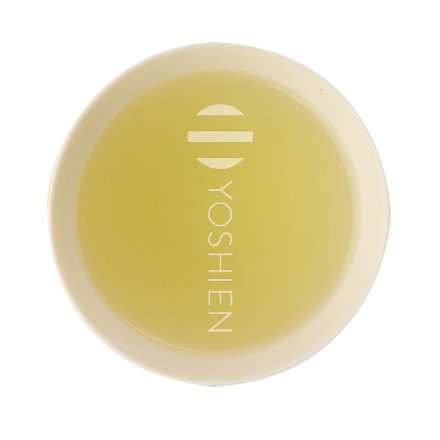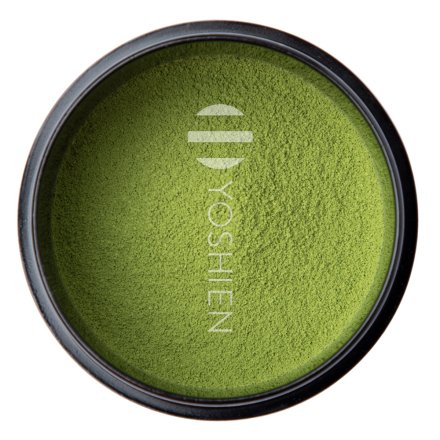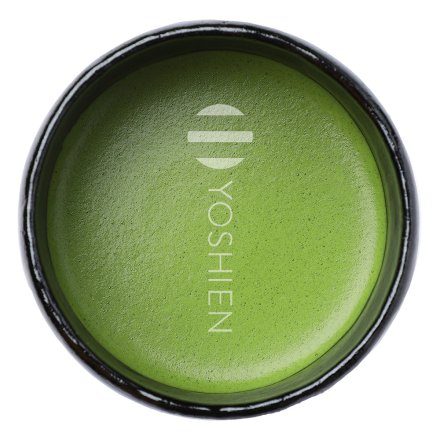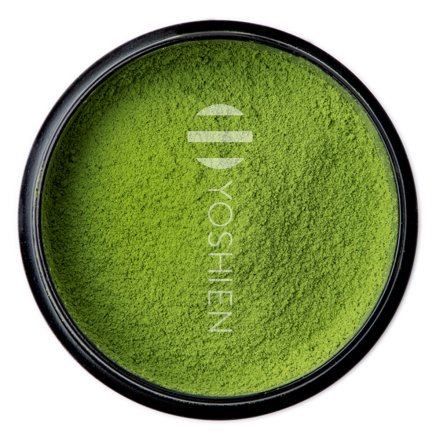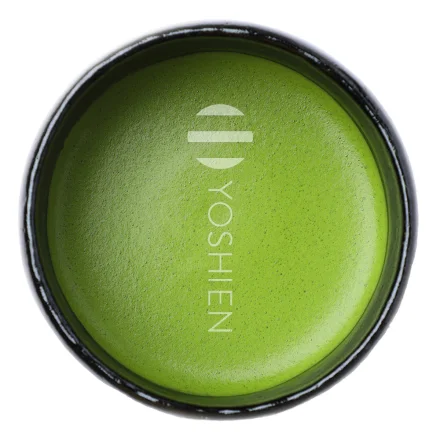ISHIKAWA SEICHA
THE AWARD-WINNING PIONEERS OF ORGANIC MATCHA CULTIVATION
| Tea Farm: |
Ishikawa Seicha |
| Terroir: |
Toyota, Aichi, Japan |
| Elevation: |
650m above sea level |
| Organic Cert.: |
EU certified organic & JAS organic since 1995, pesticide-free cultivation since 1978 |
| Focus: |
Matcha, kabusecha, sencha |
Few tea farmers in Japan can boast of such great merit for Japanese organic tea cultivation as Ishikawa Seicha, which is now run as a third-generation family business by Mr. Ishikawa Tatsuki – managed exclusively by the four adult members of the Ishikawa family. As a result, Ishikawa Seicha was the first farm in all of Japan to receive JAS organic certification for its matcha. Finally, in 2008, they were honoured for their decades-long commitment to the promotion and spread of organic tea cultivation with the Japanese Prime Minister's Gold Award, which is given annually to only one farmer – one of many high-ranking awards for the exceptional farmer Ishikawa. Thanks to the exceptionally high quality of the teas and the rigid consideration of the comprehensive organic requirements for Japan and Germany as well as the particularly strict organic certifications of the USA and Switzerland, Ishikawa Seicha can boast an unusually high export quota for Japanese tea farmers, which justifiably fills the Ishikawa family with pride. Not only the distinctive stimulating climate of the terroir in Aichi, but especially the soil carefully cultivated with organic fertilisers such as peanut bran, ensure a particularly fine aroma in the tea plants, which form the basis for the top-notch gourmet matcha. As an award-winning farmer with extensive training in many disciplines such as tea cultivation, tea ceremony, tea tasting and hand rolling, Mr. Ishikawa – an official holder of the demanding title of Nihoncha Instructor, which only a few farmers hold – is also very keen to inspire future generations about agriculture and cultivation in harmony with nature through a variety of projects.
TERROIR
At an altitude of 650m above sea level, Ishikawa's tea fields are among the highest tea fields in Japan. In winter it can get colder than -15°, and there are big differences between day and night temperatures all year round. While on the one hand this means an excellent stimulating climate for aromatic tea and serves as natural pest control, the harsh cold of winter in particular poses a special challenge for tea cultivation. When our farmer's father began to painstakingly plant new fields in the Shimoyama district of the city of Toyota in the late 1970s, a tea research centre that happened to be nearby came to his aid and recommended the newly bred Komakage cultivar – with its particularly high resistance to the cold, it is perfectly suited to the mountain terroir. The soil also had to be prepared and made fertile for tea cultivation, using natural fertilisers such as wood chips or peanut bran, which gradually added nutrients to the soil, transforming it into a very productive land with a healthy crumb structure ("danryu-kozo") after more than a decade of hard work. The remote location in the mountains fringed by deep forests means that the fields are surrounded by extremely clear air all year round – shielded from any harmful environmental influences, and thus perfectly suited for growing aromatic mountain matcha.
THE WAY TO THE FIRST ORGANIC MATCHA FARM IN JAPAN
The original tea fields owned by the Ishikawa family were located at lower altitudes – but in the late 1970s they had to be cleared for the construction of a railway line, for which the state provided our farmer's father with new land in mountainous terrain. It was therefore necessary to plant completely new fields – back-breaking work that required almost superhuman stamina from our farmer's father, especially in the freezing cold of winter. Even in freezing temperatures, he toiled day in and day out in the fields and slept in a poorly insulated bus next to the fields. What gave him the necessary motivation was his irrepressible will to continue the work of his ancestors on the one hand, and to realise his dream of a pesticide-free tea farm on the other – the soil has never come into contact with chemical pesticides since the tea fields were established in Shimoyama. Even the fertiliser is of purely organic origin and is produced by the family with great care. For example, the peanut bran, which is an important source of nitrogen for the soil, is not extracted with the help of N-hexane as is customary on the market, but is pressed in a purely mechanical process that is much more expensive.
Since Ishikawa Seicha was already producing organic and sustainable tea long before JAS Organic was standardised, it was easy for the farm to successfully certify itself in 1995. While other farmers who had very recently switched to organic cultivation had to wait several years to get certified, Ishikawa Seicha needed only minimal adjustments – which is why they finally became the first tencha & matcha farmers in Japan to receive JAS Organic certification for their farm. Ishikawa Seicha are particularly proud of the fact that, in addition to JAS Organic, they also meet the strict standards of, for example, EU-BIO and USDA Organic and thus, in stark contrast to other farmers, export up to 80% of their products abroad – where the top quality of Ishikawa matcha has attracted great attention and many enthusiasts.
FROM BOXER TO JAPAN'S LEADING MATCHA FARMER
In the meantime, the farm is run by Mr. Ishikawa Tatsuki in the third generation with great passion for tea cultivation. Originally, according to Mr. Ishikawa, his parents' farming activities were a thorn in his side, as he had long felt a sense of inferiority to his classmates and their industrially employed parents growing up in Aichi, which was dominated by the car industry. Thus, during his time at university, he devoted himself primarily to his great passion, professional boxing, and strove for a career here. It was only after graduating from university that the spark that ignited his love for tea cultivation finally ignited in him – the prospect of producing first-class teas through his own hard work and thus inspiring people motivated him on this path, and so the budding pro-boxer quickly became one of Japan's most respected tea farmers. His comprehensive education in all aspects of tea cultivation is particularly impressive – whether it is the demanding certificate of the Nihoncha Instructor, training in the most important tea ceremony schools, or winning competitions in tea rolling and tea tasting – Mr. Ishikawa never misses a chance to expand and prove his knowledge and skills. Also worth mentioning is the commitment to organic and regional farming inherited from his father. It has always been important to Ishikawa Seicha not only to grow organic produce himself, but also to convince neighbouring farmers – most of whom were sceptical at first – to convert to organic farming, with great success. For this long-standing commitment to organic farming, they were awarded the Japanese Prime Minister's Prize in 2008 – a special honour, as this prize is only awarded to one farmer per year, for very special services to Japanese agriculture. To this day, it is a very personal concern of Mr. Ishikawa to inspire the coming generation for agriculture through his continuous commitment, as a drastic ageing process has been observed in Japanese agriculture for many years and many young people like himself can hardly muster enthusiasm for the work in the fields. For this purpose, he became the leader of a regional group of young and creative like-minded people, who are working for a more positive image of agricultural activities and are trying to bring new wind into agriculture, for example, by setting up a farm café.
ISHIKAWA SEICHA
TEAS




